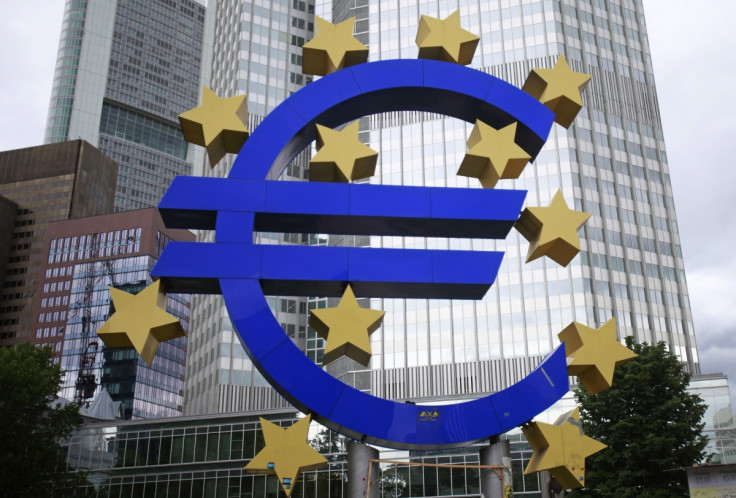Eurozone Recovery Grows Stronger but Ukraine Crisis Haunts Firms

The tentative eurozone economic recovery is strengthening as growth reaches one of its fastest rates in three years, but geopolitical risks - such as those stemming from Ukraine - hang overhead.
Research firm Markit said in its monthly survey of purchasing managers that its headline index hit 54.0 in July, up from 52.8 in June and comfortably above the neutral 50.0 mark that represents no growth or contraction in economic activity.
It was a flash estimate based on around 90% of the available data.
Eurozone states are grappling with ongoing government austerity, the threat of deflation, rife unemployment, and unresolved reforms to the troubled financial sector.
"Business activity picked up again in July to suggest that the economy is growing at one of the strongest rates we have seen in the past three years," said Chris Williamson, chief economist at Markit.
But this only implies GDP growth of 0.4% per quarter, falling well short of the confidence boosting numbers business needs to invest in job creation and expansion across the 18-member single currency area.
"Part of the weakness of growth can be attributed to geopolitical concerns, and notably worries about the potential economic impact of the escalating situation in Ukraine," said Williamson.
"The likelihood is that companies will become increasingly reluctant to commit to making big decisions on purchases, investment and hiring in the face of such economic uncertainty, suggesting growth could weaken again.
"Even with political concerns weighing on business sentiment, it's encouraging to see business in the 'periphery' expanding at the fastest rate since 2007."
The European Central Bank (ECB) has slashed interest rates and expanded its stimulus for bank lending to small businesses in a bid to give the recovery lasting momentum.
But the Ukraine crisis, which has seen battles between pro-Russian separatists and the Ukrainian government, could cause problems for the eurozone.
The crisis escalated when a Malaysian Airlines passenger plane, flight MH17, was shot down over eastern Ukraine, reportedly by the pro-Russian rebels. Russia had been supplying the rebels with arms.
All 298 passengers on board the flight, which was from Amsterdam to Kuala Lumpur, were killed. The European Union (EU) is expected to tighten existing sanctions on Russia over the incident.
Sanctions already in place have hit ultra-wealthy Russian businessmen and their assets. But there is now the threat of sectoral sanctions by the EU, a move that would hit the eurozone economy and would likely lead to retaliation by the Russians.
Russia was intitally subject to sanctions over its annexation of the Crimea region in Ukraine.
© Copyright IBTimes 2025. All rights reserved.






















